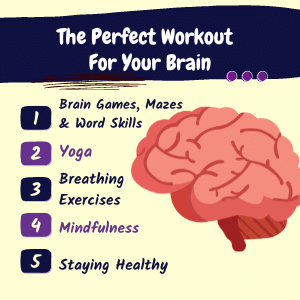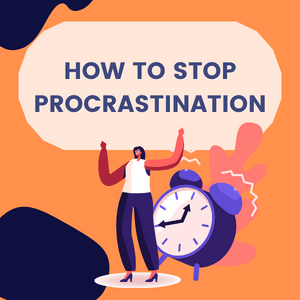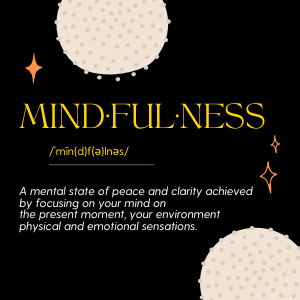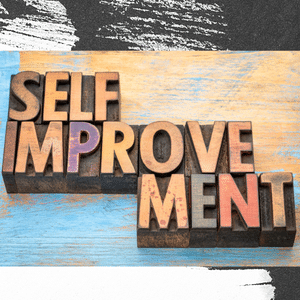

For the perfect mental workout, play brain games.
New experiences create new brain cells. Even small changes can exercise the brain and keep it sharp.
Aim for a perfect mental workout every day. Try a new activity that works your brain every day.
The benefits of a mental workout are well worth the effort.
Below are some of the best options I have found to give your brain the perfect workout.
It would help if you worked on or played maze puzzles for a perfect mental workout.
Not only do these games help you improve spatial reasoning and planning skills, but they also help you develop your memory. Games for the brain can get increasingly difficult as you play and win. This makes them a great mental workout for almost anyone.
Memory games use audiovisual cues to train your brain to recognize objects by their shapes. They also improve both short-term and long-term memory.
These games are designed by neuro-physical researchers to test various cognitive skills.
With over sixty tasks, these games are great for increasing your attention span, problem-solving skills, and reaction time. And since these games also have an attractive interface that integrates art and science, they’re sure to be a hit with all ages.
Another brain game called Simon can help you improve several aspects of your mind.
The game is challenging and can be played by itself or by others. It’s available in several different versions, including the Classic Simon Game, the Simon Air, and the Simon Travel game.
All of these games are good for playing independently or in groups. It’s also great for filling your time if you need a perfect mental workout and not a lot of time.
When you practice mindfulness, you can expand your awareness of your environment.
It can help you cope with anxiety and accomplish your goals. But the first step is to become aware of the thoughts and feelings that arise. You can do this by focusing your attention on one object at a time and returning to it when you get distracted.
This exercise may seem difficult to master, but it is possible with gentle persistence and repetition.
Try naming your thoughts and feelings to help you focus on them.
The benefits of mindfulness are widely acknowledged. It has several beneficial effects, as demonstrated in numerous studies.
For example, a study published in the journal Pain Medicine discovered that patients who practiced mindfulness exercises showed reduced pain from a chronic health condition.
Another study conducted at Duke University found that mindfulness exercises improved a person’s emotional regulation.
People with more stress may benefit from practicing mindfulness more frequently.
As well, studies have shown that mindful exercise has benefits for your physical health.
The benefits of mindful movement and meditation include cardiovascular and fasting glucose levels and a mindfulness-based workout can help you achieve your goals.
It also improves your breathing and heart rate. Furthermore, it also involves parasympathetic activity, which helps your body heal.
Practicing breathing exercises regularly will help you relieve stress and tension. Not only will they lower your blood pressure and stress levels, but they can also lower your pulse rate.
If you have trouble sleeping, breathing exercises for sleep can help you get a good night’s sleep. Moreover, you won’t need any equipment to perform these exercises.
This makes it the perfect workout for your brain and body. So, what are you waiting for? Start practicing these exercises today!
1. The most basic breathing exercise you can do is to match your breaths to the length of your body.
It’s easy, inexpensive, and a great way to get a mental workout without spending a fortune on membership.
2. The second type of breathing exercise helps you relax and calm your body. Some people call it Lion’s breath.
You can practice breathing exercises while working or studying. By following the breathing techniques correctly, you’ll be able to concentrate on your tasks and be more productive. You’ll feel more energized, calmer, and less stressed.
These breathing exercises will help you overcome your shortness of breath. Also, they’ll improve your sleep and reduce your anxiety.
If you want to learn more types of breathing exercises, including Lion’s breath, you can regularly do the perfect workout for your brain; you can read this article from Healthline.
Yoga is not just a physical workout. It also has a significant mental benefit.
Several studies have linked regular yoga practice with an improved mental state. These studies show that people who regularly practice yoga have higher levels of GABA, a neurotransmitter in the brain.
When GABA levels are low, people are more likely to experience negative emotions. Yoga improves these levels and helps people release negative feelings. They can then replace them with positive ones.
Yoga is an excellent tool for improving mental health when combined with talking therapy and meditation.
Yoga helps the brain release chemicals that balance mood and combat common mental health issues.
It also increases concentration, boosts self-esteem, and can even help people with bipolar disorder manage their attitudes.
Yoga can help those who suffer from low self-esteem or are struggling with depression find relief.
By combining yoga with meditation, it’s possible to improve your mood and mental state at the same time.
There is so much to write about on Yoga. It can also improve the memory and concentration of individuals.
The exercises require a person to be present while practicing and listening to their bodies.
They also require focus and attention during balancing postures, such as the tree pose. The focus of the mind increases as the body clears out the background noise. This allows the brain to focus better and learn new things.
Yoga is also good for the mental health of people experiencing ADHD. Despite its many benefits, yoga can be challenging but can help improve memory and concentration, which are crucial for learning and remembering.
There’s a growing body of scientific evidence supporting the benefits of meditation, but some researchers remain skeptical.
Even if meditation has many benefits, it may not be safe for certain people. People with certain medical conditions should discuss meditation with their health care providers.
Meditation may worsen the symptoms of some mental illnesses, so it’s important to talk with your doctor before starting.
While meditation is not a substitute for medical treatment, it can be a practical addition.
The benefits of meditation have been demonstrated in many areas of life. Many highly successful entrepreneurs credit the practice with helping them succeed. Even the medical and psychology community are beginning to sway in that direction.
Meditation can be both a mental and physical workout.
Try meditating for at least 15 minutes daily to see all the benefits for yourself.
The benefits can be enormous. It can improve your health, your mood, and your career!
A significant benefit of meditation for athletes is improving performance.
In addition to improving performance, meditation helps athletes learn how to recognize their blind spots and develop better training and coping mechanisms.
Athletes who meditate also enhance their awareness of the muscles in their body, helping them pinpoint injuries and prevent further damage.
These benefits do meditation, in my opinion, to be the perfect workout.
Meditation in sport goes far beyond just helping athletes improve their performance.
You can even use it to help you recover from injuries or transition from a sport.
Imagine what meditation can do for you. If you are interested in one of the best meditation courses, you can CLICK HERE to learn about my favorite. Nothing can hold you back with the proper training.
Regardless of age, taking up a hobby is a great way to give your brain a mental workout. Most forms of work only require a small number of cognitive activities to be effective.
Finance jobs, for example, require a lot of math and business skills. However, there are many other areas of the brain that are not utilized in these types of jobs.
By finding activities complementary to your job, you will achieve a better mental balance and stay mentally fit.
While picking a hobby can be stressful, the result can be well worth it.
In addition to improving your mental state, hobbies also help you relieve stress and lower your blood pressure. They also help you cope with difficult emotions, such as anxiety and stress. And by participating in a hobby, you can help others who are in need.
Whether your hobby is a sport or a musical instrument, it will be an excellent mental workout.
Another reason for taking up a hobby is that it will force you to engage in a new activity. You’ll be exposed to new ideas and ways of thinking.
Additionally, you’ll be able to benefit from the mental workout offered by the hobby, whether it’s a craft or a social activity.
The mental exercise involved with these activities will strengthen your memory and motivate you to pursue your hobby.
If you’re a fitness freak, you’ve probably heard about the benefits of taking a rest day.
You get the added boost of feeling good about your workout, but sometimes taking a day off can feel like a letdown.
To avoid this, you can approach rest days with a sense of purpose. A sense of purpose will help keep you motivated and eliminate the feeling of slacking off.
In addition to resting your muscles, you also get more out of your workout. Having sore muscles compromises your form and can make a workout too tricky.
By taking regular rest days, your muscles can recover without being weakened, and by scheduling rest days, you can fit more intense workouts into your schedule.
For example, a short break from intense exercise allows the body to recover better. A post-exercise meal helps replenish glycogen and muscle stores and optimize protein synthesis.
Who would have thought that your brain would need a rest, but I promise you it does need rest to grow.
Taking a rest day is essential. Rest days allow your body to rebuild and replenish its energy levels, allowing you to train harder and achieve even more significant improvements.
A rest day also helps prevent injuries associated with consistent training. Overtraining can result in fatigue, mood swings, and injury.
Take a rest day, or two, to recover from your previous brain workout. I enjoy being around the water on my rest day, be it the pool, beach, river, or jacuzzi. Take a rest day sometimes.
Other times I like to sleep. I always feel refreshed when I talk a short nap or sleep an hour later than usual.








